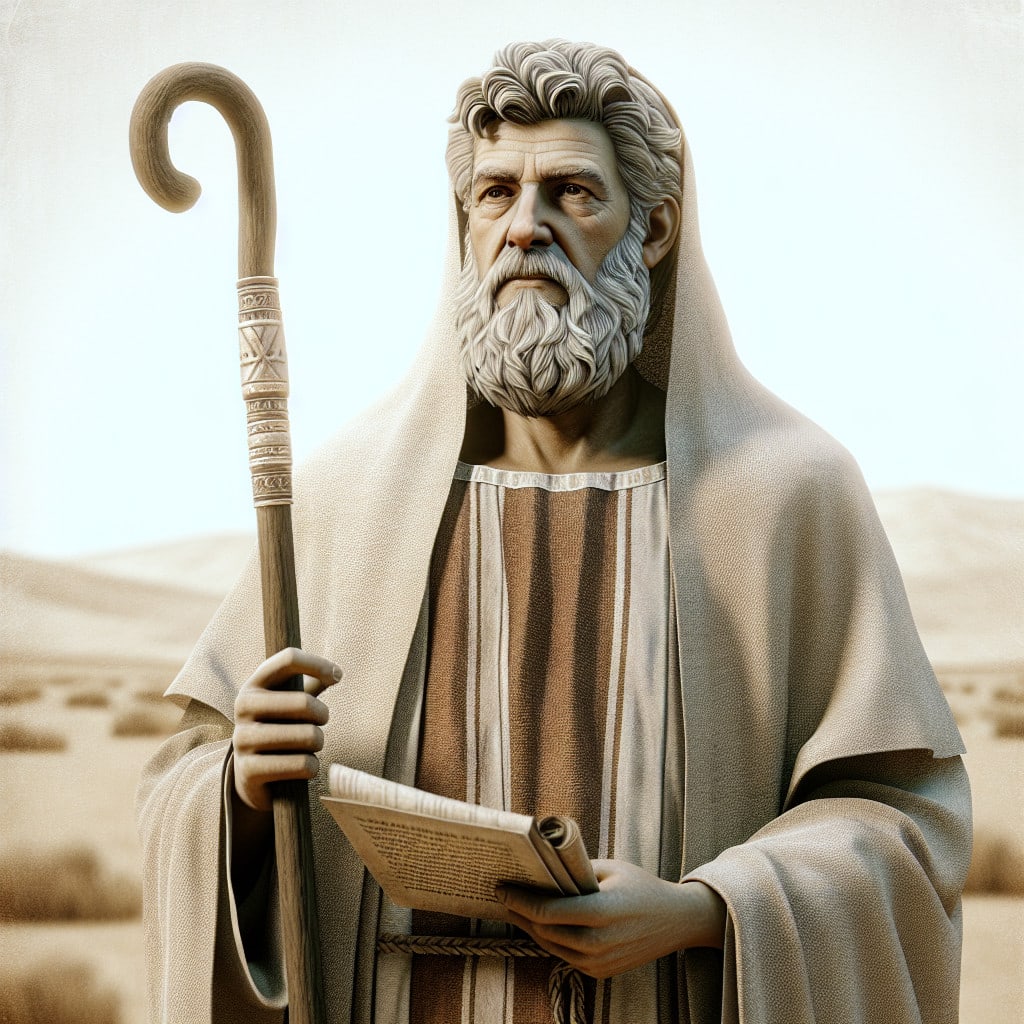The figure of Jethro is an important figure in both Biblical and religious history. He is known primarily as the father-in-law of Moses and the founder of the Midianite priesthood. His importance in the Old Testament is further highlighted by the fact that he was the first non-Israelite to whom God revealed himself. But did Jethro follow a pagan religion? Was he a pagan priest? In this article, we will explore the evidence and debate surrounding this fascinating figure.

Jethro is an interesting figure in the Bible who has been the subject of much debate and speculation. While some believe that he was a pagan priest, others have suggested that he was a priest of the God of Israel. So, who was Jethro, and was he really a pagan priest?
The Life of Jethro
Jethro was the father-in-law of Moses and the leader of the Midianite tribe. He is mentioned in Exodus, Numbers, and Deuteronomy. According to the Bible, he was a prophet and a priest of Midian. He is also credited with giving Moses advice on how to lead the Hebrews.
In Exodus 18:1-12, Jethro is described as bringing Moses’ wife and sons to him in the wilderness. He then advises Moses on how to organize the people into different groups, so they can effectively serve God. This advice was so helpful to Moses that he named his son Gershon after Jethro.
Was Jethro a Pagan Priest?
The question of whether Jethro was a pagan priest has been a topic of debate since the time of the early church fathers. Some believe that he was a priest of the God of Israel, while others suggest that he was a pagan priest.
Those who believe that Jethro was a pagan priest point to the fact that he is described as a “priest of Midian” in Exodus, Numbers, and Deuteronomy. Midian was a polytheistic society, so it stands to reason that Jethro may have been a pagan priest.
On the other hand, those who believe that Jethro was a priest of the God of Israel point to the fact that Jethro is credited with giving Moses advice on how to serve God. This could indicate that Jethro was familiar with the teachings of the God of Israel, and was thus a priest of the God of Israel.
Further Evidence
When looking at the further evidence, it is difficult to definitively conclude whether or not Jethro was a pagan priest. However, there are some clues that may point to either conclusion.
First, Jethro is described as a “priest of Midian” in Exodus, Numbers, and Deuteronomy. This could indicate that he was a pagan priest, as the Midianites were a polytheistic society.
Second, Jethro is credited with giving Moses advice on how to serve God. This could indicate that he was familiar with the teachings of the God of Israel, and was thus a priest of the God of Israel.
Third, Jethro is described as bringing Moses’ wife and sons to him in the wilderness. This could indicate that he was familiar with the teachings of the God of Israel and was protecting Moses’ family from the dangers of the wilderness.
Conclusion
In conclusion, it is difficult to definitively conclude whether or not Jethro was a pagan priest. However, the evidence suggests that he may have been either a pagan priest or a priest of the God of Israel. Ultimately, this is a question that may never be answered definitively.
In conclusion, it is clear that Jethro had a spiritual connection to the ancient pagan religion of his time. He was a priest, a wise man, and a leader in his community. He was an advocate for justice and mercy, and his teachings were based on the principles of love and respect for all. His legacy lives on in the Bible, where he is remembered as a great leader and a wise teacher. Jethro’s impact on religion and culture is undeniable, and his legacy is an important reminder of the power of faith and spiritual connection. Jethro’s teachings and legacy continue to inspire people of all faiths to this day.





